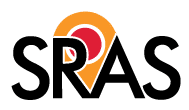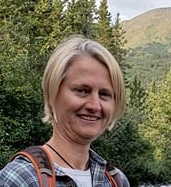At SRAS we have seen a steady increase in the numbers of custom faculty-led programs that we are hosting in Russia. These programs are increasingly diverse, going beyond the highlights of Russian history and culture to explore religion, architecture, art history, commerce, and more.
The rest of the post-Soviet space has drawn far fewer groups. This is not because it is any less interesting, or the opportunities are fewer. In some ways, it is the opposite, as you have not only the rich culture and history of the country itself, but also Russian and Soviet influences to consider within the context of a local identity. Many of our group leaders, after a successful program in Moscow/St. Petersburg, have started looking further afield to other regions of Russia – or Ukraine, the Caucasus, and Central Asia. We feel that it is simply a matter of time before we start seeing the rest of the post-Soviet space increase in popularity among faculty leaders.
The Case for Ukraine
As the 3rd largest Russian speaking city in the world, Kyiv draws an increasing number of students of Russian. See our recent podcast for a discussion of language study and study abroad in Kyiv. It helps that no visa is required for many nationals who visit for 90 days or less, but other factors such as lower cost of living and greater perceived LGBTQ+ tolerance are also a draw for the location.
Ukraine is the largest country in Europe (not counting Russia, which straddles Europe and Asia) and it is equally diverse. The most visited cities of Kyiv, Lviv, and Odessa have distinct identities and offer a variety of subjects to explore with your students. Strong local identities are also held by Ukrainians, Russians, Tatars, Jews, Rusyns, and others. Ukraine has a strong Orthodox background, but has significant populations of Catholics and a broad array of minority religions.
The Identity Factor
Our regular study abroad programs based in Kyiv focus heavily on Ukrainian identity. We look at this either in the context of culture and history, or in the case of our Policy & Conflict in the Post-Soviet Space program, from the additional viewpoint of conflict and security.
In the design of custom faculty-led programs, identity serves as an excellent unifying theme, within which such subjects as history, culture, the arts, religion, politics, and current events can all be explored. Consider, for example, the following:
- Kievan Rus is considered the forerunner to modern Russia
- Many Russian writers or their works are closely connected with Ukraine
- One of the world’s oldest cultures, the Trypillians, flourished in what is now Ukraine and Romania
- Ukraine is home to many visible and visitable remnants of the Cold War period, including Chernobyl and the Pervomaysk Missile Base
- Some of the most famous regional foods, like borscht, originated in Ukraine
- From Kyiv and Babi Yar to Uman and Odessa, there are many sites significant to Jewish heritage
Ukraine offers high value, allowing for much more “inclusive” programming at an excellent price point. Our partners in Kyiv, NovaMova, believe strongly in experiential learning. Whether a cooking class, pottery workshop, street photography, or an archaeological dig, your students will leave with a new understanding of identity.
Where to start?
See our sample itinerary “Modern Transformations in Ukrainian Identity” for an idea of what your trip might look like. It is easily adapted to a more focused theme and to trips of varying duration. Contact us to learn more!


